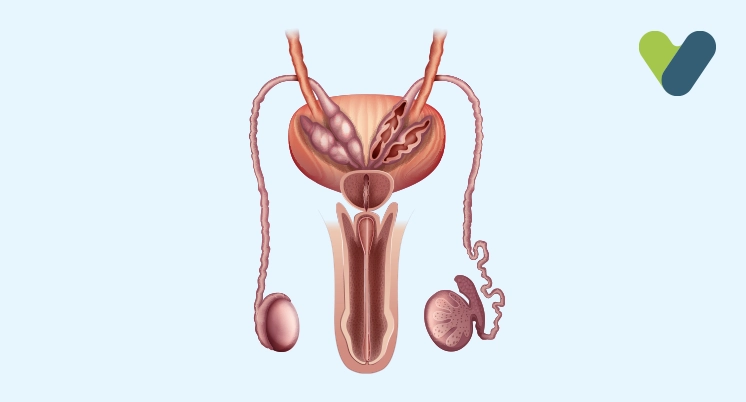Laser prostate surgery or laser prostatectomy is used to treat mild to severe urinary issues caused by an enlarged prostate. This condition is medically known as benign prostatic hyperplasia (BPH). Laser prostatectomy is a minimally invasive surgery, so there is reduced bleeding and pain, short hospital stays, and a quick recovery.
During laser prostate surgery, the doctor will insert a narrow fibreoptic scope into the urethra, which is a tube that transports urine from the bladder. The prostate surrounds the urethra, and enlargement of the prostate inhibits urine passage from the bladder. A laser sent through the scope produces energy that reduces or eliminates extra prostate tissue, which is impeding urine flow.
There are different types of laser prostate surgeries, such as:
Photoselective Vaporisation of the Prostate (PVP): PVP uses a high-power green-light laser to eliminate extra prostate tissue. The laser energy instantly vaporises and precisely eliminates the enlarged prostate tissue in a completely bloodless treatment. This permits patients who are using blood thinners to be treated. Patients who use pacemakers, defibrillators, and neurostimulators can also undergo this surgery with success. Very big prostate glands that were inoperable with other existing minimally invasive treatments and typically necessitate an open surgical approach can also be operated on with ease.
Holmium laser ablation of the prostate (HoLAP): This laser prostate surgery is like PVP, except it uses a different type of laser. The prostate tissue is completely removed and is not available for pathology evaluation.
Holmium laser enucleation of the prostate (HoLEP): The technique, also employs a laser to remove tissue that is impeding urine passage through the prostate. The prostate tissue is subsequently sliced into easily detachable parts using a different device. HoLEP is akin to open prostate surgery but does not involve any incisions. HoLEP eliminates the whole prostate that can obstruct urine flow. It could be used to treat a highly enlarged prostate.
The type of laser surgery you need will be decided by your doctor, depending on these variables:
- Severity of your medical condition (size of your prostate)
- Your age
- Comorbidities
- Equipment availability
- Doctor’s training
Why is laser prostate surgery done?
BPH can lead to many urinary issues, like:• Frequent urination • Feeling that your bladder is not empty even after you’ve been to the restroom • Increased urination at night • Prolonged urination • Difficulty in trying to urinate • UTIs • Bloody urine • Kidney and bladder damage • Inability to urinate • Inability to stop urination • Bladder stones
Advantages of laser prostatectomy
Laser prostate surgery has various advantages over other treatments available for BPH. Medication can be prescribed but can take weeks or months to produce visible results. For urinary problems like the ones mentioned above, laser surgery produces immediate results. Then there are many advantages of choosing laser prostate surgery over traditional methods, like:
Little to no bleeding: Laser surgery may be a possibility for men who take blood thinners or have a bleeding issue that prevents their blood from clotting normally. Brief hospital stay: The patient is discharged after an overnight observation, or at most for a day.
Fast recovery: Little and small incisions mean that the patient does not have to get multiple dressing changes or be extra vigilant about being in a sterile hospital environment. Less need for a catheter: Following surgery to remove an enlarged prostate, a tube (catheter) is usually used to drain urine from the bladder. With laser surgery, a catheter is usually required for fewer than 24 hours.
Questions to ask your surgeon
Undergoing any form of surgery can be life-altering and stressful. What may be a routine surgery for your surgeon, will not feel the same for you. So, asking questions and clarifying all your doubts before you decide to get on the operating table should help relieve some of the stress. Here are some questions you can ask:
- How serious is my condition?
- How likely is it that I'll recover from this condition?
- What are the possibilities of this treatment having side effects?
- How long will this treatment's effects last?
- Will I have to have this procedure again?
- Are there any alternatives to this surgery?
- What will happen if I decide not to opt for this procedure?
What to expect during laser prostatectomy surgery?
Laser prostatectomy surgery is an outpatient operation performed under general anaesthesia. You will be administered with general anaesthetic or spinal anaesthesia prior to surgery.
You will be unconscious during the operation if you are given general anaesthetic. With spinal anaesthetic, you will stay conscious, but pain from the surgery location will be suppressed.
What to anticipate during and following prostate laser surgery differs based on the type of laser and technique employed.
There are usually no incisions required for laser surgery. Your doctor will put a scope into the urethra during the surgery. The scope aids in the visualisation of the blockage induced by the enlarged prostate.
A laser fibre is inserted through the scope once it has reached the precise site of the urethral impediment.
The laser fibre is then turned on. Multiple pulses of laser energy melt the swollen prostate tissue from within, causing the prostate gland to shrink. The lasers' heat also closes the blood vessels, lowering the danger of bleeding.
Preparing for the surgery
Depending on the type of laser surgery you are about to undergo, your doctor will tell you if there is a need to stop taking certain medications. These can include prescription medicines, Ayurvedic or homeopathic ones too. You will most likely be given an antibiotic to avoid a urinary tract infection.
The hospital will advice you to make travel arrangements as from the surgery that day because you will not be physically ready to drive back home.
Recovery There will be swelling that prevents urine flow after surgery, so you'll most probably have a urinary catheter in place. Your doctor may reinstall the catheter to allow you to recover if you are unable to urinate after the tube is taken out. They may also give you catheters that you can insert on your own every day until the swelling goes down and you can urinate normally.
You will be advised to take it easy after the surgery and resume heavy-duty activities only after you have made a full recovery. This means no contact sports, no heavy weight lifting at the gym, or other strenuous physical activities that can derail recovery.
You will be prescribed medicines for pain, and antibiotics to keep infections at bay. You will also be instructed to seek medical attention if you notice anything out of the ordinary, such as blood or excruciating pain.
You will also be asked to abstain from having sexual intercourse for a while because ejaculating so soon after the surgery can be painful or even cause unwanted bleeding.
Risks and complications
The risks of laser prostatectomy are lower than those of other prostate procedures.
Although complications are exceedingly rare, they may arise. Among these are:
- Increased frequency in urination
- Loss of urinary control (incontinence)
- Retrograde ejaculation (when the semen enters the bladder instead of coming out of the penis)
- Urethral strictures (narrowing of the urethra)
- Erectile dysfunction
- Infection of the bladder, testicles, or the kidney
- Significant bleeding requiring a blood transfusion


